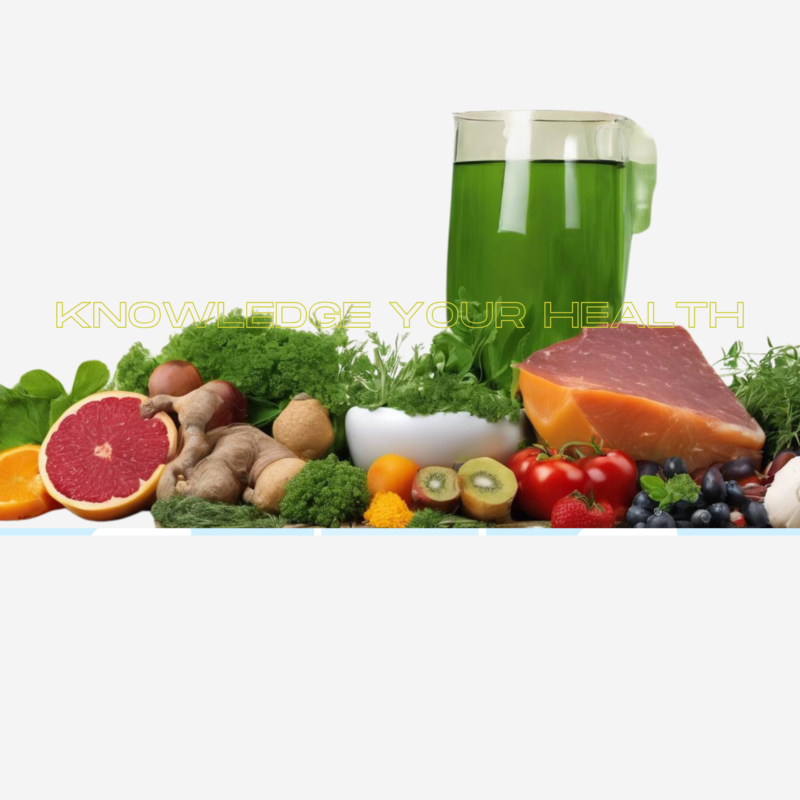Essential Vitamin A: Promotes eye health and immune system function
Vitamin A is an essential nutrient that plays a critical role in promoting eye health and supporting the immune system. It is a fat-soluble vitamin, meaning it is absorbed and stored in the body’s fat tissues for later use. This important nutrient comes in two forms: retinoids, which are found in animal products such as liver, dairy, and eggs; and carotenoids, which are found in plant-based foods like carrots, sweet potatoes, and spinach. Both forms of vitamin A are crucial for maintaining overall health.
One of the primary functions of vitamin A is to support good vision. It is responsible for producing visual pigments in the retina, which allows our eyes to see light. Vitamin A also helps maintain a clear cornea (the outermost layer of the eye), preventing dryness and improving night vision. In fact, a deficiency in this nutrient can lead to night blindness or even permanent vision loss.
Aside from its impact on eye health, vitamin A also plays a vital role in boosting the immune system. The key players here are our white blood cells – specialized cells that protect us from infections and diseases by attacking foreign invaders like bacteria and viruses. Vitamin A helps regulate the production of these white blood cells while also maintaining their function.
Moreover, studies have shown that this nutrient has anti-inflammatory properties that can help reduce chronic inflammation within the body. Chronic inflammation has been linked to numerous health issues such as heart disease and diabetes, making adequate intake of vitamin A crucial for overall well-being.
Apart from its direct effects on eye health and immunity, research suggests that vitamin A may also have cancer-fighting abilities due to its antioxidant properties. Antioxidants help neutralize harmful free radicals within our bodies – unstable molecules that can damage cells if left unchecked – potentially reducing the risk of certain types of cancer.
It’s important to note that while getting enough vitamin A is crucial for maintaining good health; excessive intake can be harmful. Too much of this nutrient can lead to symptoms such as nausea, headaches, and even liver damage. It’s recommended to stick to the recommended daily allowance (RDA) for vitamin A, which is about 700-900 micrograms (mcg) for adults.
As with all essential vitamins and nutrients, a balanced and varied diet rich in fruits and vegetables is the best way to ensure adequate intake of vitamin A. However, those who may not consume enough through their diet can opt for supplements under the guidance of a healthcare professional. Vitamin A supplements are available in various forms, including capsules, tablets, or liquid drops.
Vitamin A is a crucial nutrient that promotes eye health and supports immune system function. Adding foods rich in this essential nutrient to your diet or taking supplements judiciously can do wonders for your overall health and well-being.

Essential Vitamin B: Supports metabolism and energy production
Vitamin B is a group of essential nutrients that play a crucial role in supporting metabolism and energy production. This diverse group of nutrients consists of eight water-soluble compounds, including thiamine (B1), riboflavin (B2), niacin (B3), pantothenic acid (B5), pyridoxine (B6), biotin (B7), folic acid or folate (B9) and cyanocobalamin or cobalamin (B12). Each B vitamin has its unique functions but they all work together to ensure our body’s metabolic processes run smoothly.
One of the key roles of vitamin B in metabolism is their involvement as coenzymes. Coenzymes are molecules that assist enzymes in their catalytic reactions, aiding in the breakdown of carbohydrates, fats, and proteins into usable energy for the body. These reactions are vital for maintaining proper cell function and supporting various bodily processes such as digestion, respiration, and muscle movement.
Another important function of vitamin B is its role in red blood cell production. Folate, also known as vitamin B9, plays a critical part in DNA synthesis during the formation of red blood cells. These cells carry oxygen throughout our body, providing us with energy and keeping us functioning at our best.
Apart from metabolism and energy production, vitamin B also supports healthy nerve function. Thiamine or B1 is particularly beneficial for nerve health as it helps to produce myelin- a protective sheath around nerves responsible for proper conduction of nerve impulses. This process ensures efficient communication between the brain and other parts of the body.
Additionally, some B vitamins have been shown to play an essential role in maintaining cardiovascular health. Niacin or vitamin B3 has been found to improve blood cholesterol levels by lowering LDL (“bad”) cholesterol while increasing HDL (“good”) cholesterol levels. This effect can help prevent heart diseases, such as atherosclerosis or the hardening of arteries.
B vitamins are also known for their role in promoting healthy skin, hair, and nails. Biotin or vitamin B7 is particularly essential for maintaining strong and healthy hair and nails. It does so by improving the keratin infrastructure which forms the basic structure of hair, skin, and nails.
Vitamin B is an essential group of nutrients that supports metabolism and energy production in our body. In addition to these primary functions, they also play a crucial role in nerve function, red blood cell production, cardiovascular health and promoting healthy skin, hair and nails. To ensure optimal health and well-being, it is important to incorporate foods rich in vitamin B into our diet or consider taking supplements if necessary.

Essential Vitamin C: Boosts immune system and collagen production
Vitamin C, also known as ascorbic acid, is a powerful antioxidant that plays a crucial role in maintaining a healthy body. It is water-soluble, meaning it dissolves in water and is not stored in the body, so it must be consumed daily through diet or supplementation.
One of the most well-known benefits of essential vitamin C is its ability to boost the immune system. It helps support the production of white blood cells, which are responsible for fighting off infections and diseases. In fact, numerous studies have shown that ascorbic acid can reduce the severity and duration of illnesses such as the common cold and flu (1). This makes it an essential nutrient during cold and flu season when our bodies are more susceptible to illness.
Beyond its immune-boosting properties, vitamin C also plays a crucial role in collagen production. Collagen is one of the most abundant proteins in our bodies and has many important functions, including giving structure to skin, bones, tendons, and ligaments. Ascorbic acid is necessary for the formation of collagen fibers, which provide strength and elasticity to these tissues (2). Without enough vitamin C intake, collagen synthesis may be impaired leading to skin problems such as dryness or premature aging.
Moreover, ascorbic acid also acts as an antioxidant by protecting cells from damage caused by free radicals. Free radicals are unstable molecules that can cause oxidative stress in our bodies if left unchecked. This stress has been linked to chronic diseases like heart disease and cancer (3). As an antioxidant, ascorbic acid neutralizes these free radicals before they can cause harm.
In addition to its essential roles in immunity and collagen production, ascorbic acid benefits our overall health in various ways. It aids in iron absorption from plant-based sources of food (4), supports cardiovascular health by improving blood flow (5), promotes wound healing by aiding tissue repair (6), and may even offer protection against certain types of cancers (7).
The recommended daily intake of vitamin C for adults is 75mg for women and 90mg for men. However, certain factors like smoking, alcohol consumption, and chronic illness can increase the body’s need for vitamin C (8). Therefore, it is essential to consult with a healthcare professional to determine an appropriate dosage if considering supplementing with ascorbic acid.
Vitamin C is a crucial nutrient that plays many roles in maintaining our health. From boosting our immune system to supporting collagen production and acting as an antioxidant, there are countless benefits to ensuring we get enough of this vital antioxidant. So be sure to include plenty of vitamin-C-rich foods like citrus fruits, berries, peppers, and leafy greens in your diet or consider adding a high-quality supplement to support your optimal health.

Essential Vitamin D: Helps with bone health and
Essential vitamin D is a fat-soluble vitamin that plays a crucial role in maintaining strong and healthy bones. It helps the body to absorb calcium, which is essential for building and maintaining bone density. Adequate levels of D are also necessary for bone remodeling, where old bone tissue is broken down and replaced with new bone tissue.
One of the key functions of vitamin D is regulating calcium levels in the body. Calcium is a mineral that makes up a large part of our bones and teeth and is vital for other bodily functions such as muscle contraction, nerve signaling, hormonal secretion, and blood clotting. When calcium levels drop too low, our bodies turn to the bones as a source of this essential mineral. Over time, this can lead to weakened bones and conditions such as osteoporosis.
Vitamin D works hand in hand with parathyroid hormone (PTH) to maintain proper calcium balance in the body. PTH stimulates the release of calcium from bones into the bloodstream when levels are low. Vitamin D then kicks in to facilitate the absorption of this released calcium in the gut, ensuring it gets back into circulation where it’s needed.
Furthermore, D also aids in regulating phosphorus levels in the body. Together with calcium, phosphorus plays a critical role in bone formation and maintenance. Without enough D to help absorb these minerals into bones, they may become soft or brittle, leading to increased risk for fractures.
In addition to its role in maintaining strong bones, research has shown that D may have other health benefits as well. Studies have linked adequate intake of vitamin D with reduced risk for autoimmune diseases like multiple sclerosis (MS), rheumatoid arthritis (RA), type 1 diabetes mellitus (T1DM), skin conditions like psoriasis and eczema, and some types of cancer.
Unfortunately, many people do not get enough vitamin D from their diet alone. Our primary source of this D is sunlight, which helps our skin produce it in its active form. However, due to a variety of factors such as geographical location, season, time spent indoors, and use of sunscreen, many people do not get enough sun exposure to produce adequate levels of D.
This is why supplementation or consuming food sources rich in D is crucial. Foods that are naturally high in this nutrient include fatty fish like salmon and mackerel, egg yolks, and beef liver. Additionally, fortified dairy products and cereals are good dietary sources for vitamin D.
Ensuring adequate intake of vitamin D through diet and/or supplementation is essential for maintaining healthy bones and preventing conditions related to calcium imbalance. It’s also vital for overall health as emerging research continues to uncover the diverse benefits of this essential nutrient.

Essential Vitamin E: Protects Oxidative Damage
Vitamin E is a powerful antioxidant that plays a vital role in protecting our cells from oxidative damage. It is known as one of the most important vitamins for maintaining overall health and preventing chronic diseases. In this section, we will delve into the benefits of powerful antioxidant E, its food sources, and recommended daily intake.
Firstly, let’s understand why our body needs antioxidants. Our cells are constantly exposed to harmful molecules called free radicals from environmental factors such as pollution, UV radiation, and even normal bodily processes like metabolism. These free radicals can cause damage to our DNA, proteins, and other cellular components leading to various diseases like cancer, heart disease and premature aging. Antioxidants like vitamin E work by neutralising these free radicals before they can cause any harm.
One of the main roles of this powerful antioxidant E is its ability to protect cell membranes from oxidative damage. The cell membrane acts as a protective barrier around the cell and is crucial for maintaining its structure and function. When free radicals attack the cell membrane, it becomes unstable which can disrupt important cellular processes. Vitamin E prevents this by donating an electron to stabilise the free radical and stopping further damage.
But that’s not all- vitamin E also has anti-inflammatory properties that help in reducing inflammation in the body. Chronic inflammation has been linked to several illnesses including heart disease, diabetes, Alzheimer’s and cancer. Vitamin E helps lower levels of pro-inflammatory substances in our body thereby reducing inflammation.
Apart from its antioxidant abilities, This essential powerful antioxidant E also plays a crucial role in maintaining healthy skin and hair due to its moisturising properties. It strengthens hair follicles by improving blood circulation and promotes healthy skin by protecting against UV radiation induced damage.
Now let’s talk about food sources rich in vitamin E. Nuts (especially almonds), seeds (such as sunflower seeds), avocadoes, olive oil are some excellent sources of this nutrient. Green leafy vegetables like spinach and broccoli also contain significant amounts of E. Additionally, it can be found in fortified cereals and supplements.
The recommended daily intake of this powerful antioxidant E for adults is 15mg per day. However, pregnant women and individuals with certain medical conditions may require higher doses as advised by their healthcare provider.
Vitamin E is a vital nutrient that plays an essential role in protecting our cells from oxidative damage and maintaining overall health. Incorporating foods rich in this nutrient into our diet can help us reap its numerous benefits and keep our bodies healthy. So make sure to include this amazing powerful antioxidant E-rich foods in your meals and take care of your body from the inside out!
Do Follow This Super Antioxidant

Essential Vitamin K: Blood Clotting And Bone Health
Vitamin K is a essential vital nutrient that plays a crucial role in our overall health. It has been gaining more attention in recent years due to its benefits for both blood clotting and bone health. In this section, we will dive deeper into the functions of K and how it contributes to keeping our bodies functioning at their best.
First and foremost, vitamin K is responsible for helping our blood to clot properly. When we experience a cut or injury, our body needs to form a blood clot to stop the bleeding. This is where this essential K comes in – it activates proteins that help with the coagulation process, ensuring that the wound is sealed off and healing can begin. This function of vitamin K also makes it essential for managing bleeding disorders such as hemophilia.
Beyond its role in blood clotting, vitamin K also plays an important part in maintaining strong and healthy bones. It works alongside calcium to ensure proper bone formation by regulating osteoclasts (cells that break down old bone tissue) and osteoblasts (cells that build new bone tissue). Inadequate levels of K have been linked to weakened bones and conditions such as osteoporosis.
One specific form of vitamin K – known as MK-7 – has shown promising results in improving bone health even further. A study conducted on postmenopausal women found that daily intake of 180 mcg MK-7 led to significant improvements in bone mineral density over a three-year period compared to those who did not take the supplement. This suggests that incorporating foods or supplements containing MK-7 may be beneficial for individuals looking to maintain strong bones.
While vitamin K’s main functions lie within blood clotting and bone health, it also has other roles within the body. For instance, research has shown that K may play a crucial role in controlling inflammation, which can contribute to various chronic diseases such as heart disease and cancer.
So where can we get our daily dose of vitamin K? This nutrient is primarily found in dark leafy greens such as kale, spinach, and broccoli. It is also present in lower amounts in other vegetables, fruits, meats, and fermented foods. If your diet lacks these sources or if you have a condition that may interfere with vitamin K absorption (such as Crohn’s disease), supplementation may be necessary to ensure adequate intake.
Vitamin K is an essential nutrient that plays a crucial role in blood clotting, bone health, and potentially other aspects of our well-being. Make sure to include ample sources of this underrated vitamin K in your diet for optimal health and wellness.

Essential Vitamin B12: Production Of Red Blood Cells And DNA Synthesis Nerve Function
Vitamin B12, also known as cobalamin, is a vital nutrient that plays multiple roles in maintaining the overall health and functioning of our body. This water-soluble vitamin is not produced by plants or animals, but rather by bacteria. Therefore, we must obtain it from animal-based food sources such as meat, poultry, fish, eggs, and dairy products.
One of the main functions of B12 is its role in the production of red blood cells. Red blood cells are responsible for carrying oxygen throughout the body and removing carbon dioxide. Without enough red blood cells, our tissues and organs would not receive enough oxygen to function properly. In severe cases of B12 deficiency – known as pernicious anemia – a person can develop symptoms such as weakness, fatigue, shortness of breath, and even nerve damage if left untreated.
Apart from red blood cell production, B12 also plays a crucial role in DNA synthesis -the process by which genetic information is copied to create new cells for growth and repair. It works together with folate (another type of B vitamin) to produce healthy red blood cells and maintain proper neurological function.
Speaking of neurological function, another essential role that this nutrient has is maintaining nerve health. B12 helps form the myelin sheath – a protective covering surrounding nerves that allows them to communicate efficiently with each other and with various parts of our body. A deficiency in this vitamin can lead to nerve damage and conditions such as tingling sensations or numbness in the hands or feet.
But why do some people have low levels of B12?
As mentioned earlier, since our bodies do not produce it on their own; we must obtain it from external sources like food or supplements regularly. However,eople who follow strict vegetarian or vegan diets may be at higher risk for developing a deficiency since plant-based foods do not contain adequate amounts of this nutrient.
Moreover,populations who have undergone certain gastrointestinal surgeries, such as weight loss procedures, may also struggle with B12 deficiency. This is because these surgeries can affect the body’s ability to absorb this cobalamin from food.
Vitamin B12 plays a crucial role in red blood cell production and DNA synthesis, making it essential for maintaining a healthy body. It also plays a vital part in nerve function, ensuring proper communication between our brain and various parts of the body. Therefore, it is essential to include sources of this nutrient in our diet regularly or consider supplements if needed.


3 thoughts on “The No-1 Vitamins Ultimate Guide To Change Your Body Health Best Way (Part-2)”